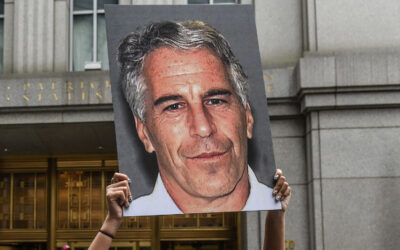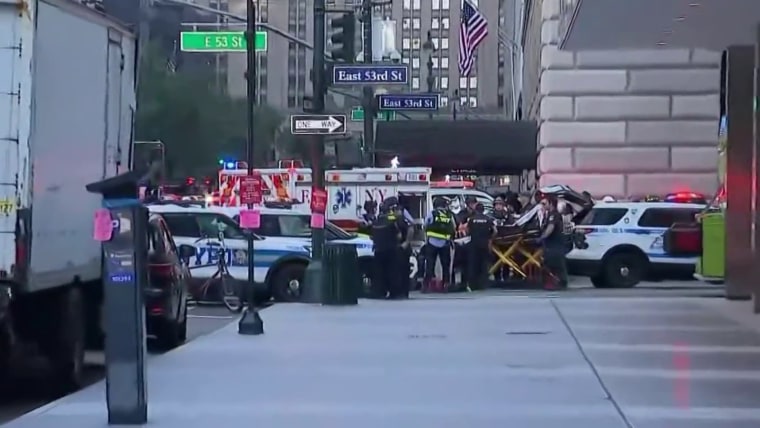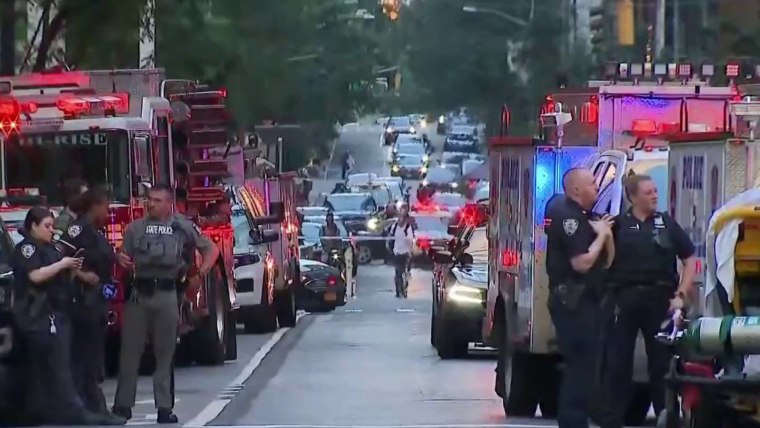An inside look at the El Salvador prison where Kilmar Abrego Garcia was moved after supermax site
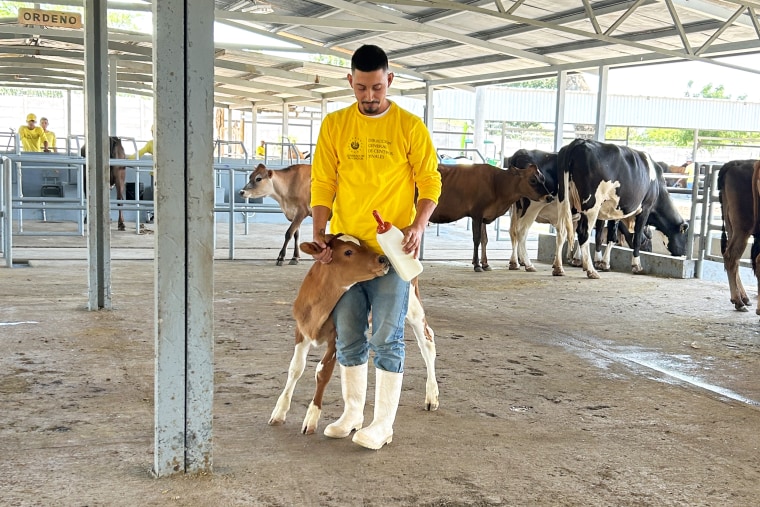
SANTA ANA, El Salvador — The sprawling penitentiary where Kilmar Abrego Garcia was last known to be held offers a sharp contrast to the supermax mega-prison to which he was first deported.
Rather than tattooed gang members in brightly lit, crowded cells, the inmates at the Centro Industrial prison in Santa Ana wear yellow t-shirts and move more or less freely. Some spend much of their time outdoors raising dairy cows and growing vegetables. Others work in factories making uniforms for the armed forces or desks for public schools.
The government calls these “trusted inmates”: They have exhibited good behavior and are in the final years of their sentences. And the prison categorically excludes anyone accused of belonging to a gang.

“We only house the common population,” said Samuel Diaz, the prison’s director and warden. “No gang members work here.”
NBC News obtained access Monday to the Centro Industrial in Santa Ana in a carefully choreographed tour. Officials did not provide access to Abrego Garcia, and they would not answer questions about his location, the conditions of his detention or any other aspects of his case. But they facilitated interviews with other inmates, who described the conditions in the prison as “perfect” and “excellent.”
The Trump administration has been ordered by the Supreme Court to “facilitate” the return of Abrego Garcia, a Maryland man who the Justice Department has acknowledged should not have been sent to a prison in his native El Salvador because of an immigration judge’s 2019 order barring such action.
For human rights advocates in El Salvador and the United States, the details of Abrego Garcia’s transfer — from the Terrorism Confinement Center, or CECOT, a supermax prison specifically designed for gang members, to a low-security prison from which gang members are excluded — contradicts a central claim made by both governments: That Abrego Garcia is a dangerous member of MS-13 and a terrorist. (His wife and attorney deny those allegations.)
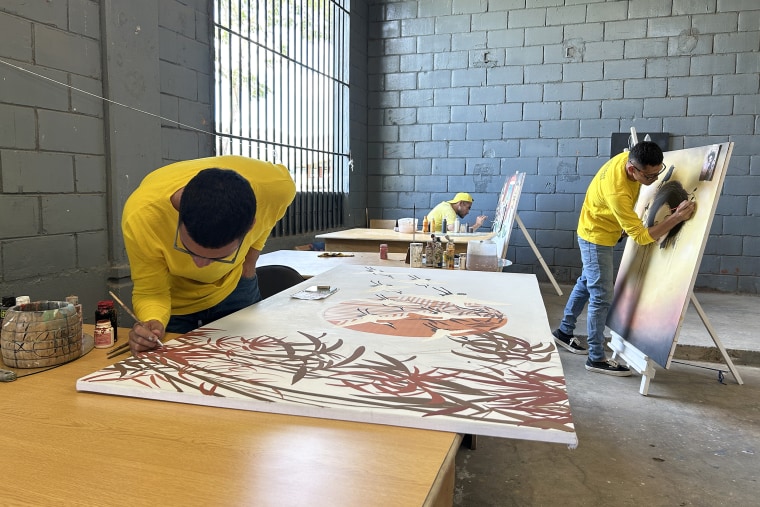
Abrego Garcia’s precise whereabouts and condition remain unknown. Since his deportation, Abrego Garcia has been allowed no contact with his family or lawyers. In a meeting with Democratic Sen. Chris Van Hollen on April 17 (the only time he has been seen since his deportation), Abrego Garcia said he had been transferred out of CECOT to a different facility. Documents filed in federal court by the U.S. Department of Justice on April 20 subsequently confirmed that facility to be the Centro Industrial in Santa Ana. There have been no updates since.
From that perspective, Abrego Garcia’s transfer out of CECOT is worrisome, said Gabriela Santos, director of the Human Rights Institute at the Central American University in San Salvador.
“Why was he moved?” Santos said. “And where are all the other migrants that were brought here — are they in CECOT or are they being put in different prisons in El Salvador?”
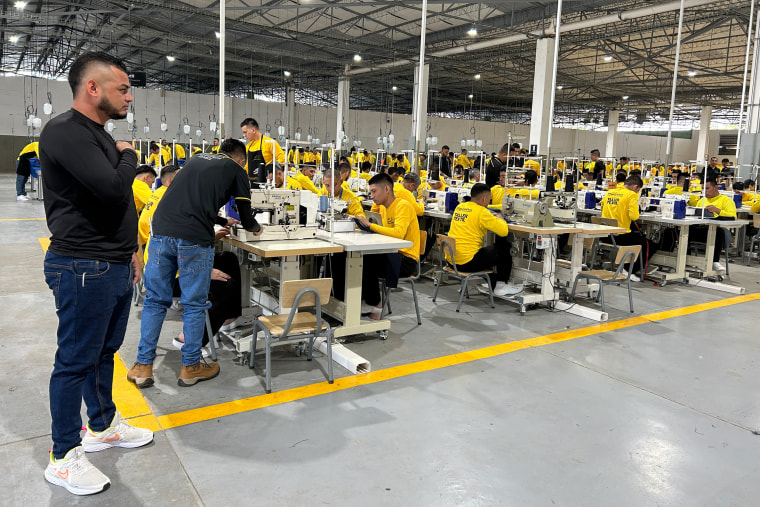
Santos said there is no evident legal basis for Salvadoran President Nayib Bukele’s agreement with Trump to receive and imprison deportees from the United States.
“From a legal point of view, there is no reason for [Abrego Garcia] to be here,” Santos said. And because Bukele has consolidated power over all branches of government, she added, there is no viable avenue to challenge the policy.
“There is no rule of law here in El Salvador. There is no respect for the principle of legality,” she said.
Like Abrego Garcia and others the Trump administration deported directly to CECOT, all inmates in the Salvadoran prison system are cut off from contact with lawyers, loved ones and others on the outside. This policy is the result of a “state of exception” that Bukele declared in 2022 after a particularly brutal wave of gang violence, in which he suspended many constitutional protections to quickly imprison tens of thousands without due process.
Some 85,000 people were imprisoned in the state of exception, according to Salvadoran human rights groups. Many were subjected to mass trials of a hundred or more defendants with no access to counsel. Advocates have documented numerous stories of people with no proven affiliation with gangs who were incarcerated indefinitely with virtually no recourse to appeal.
Moreover, rights groups in El Salvador and abroad have harshly criticized prison conditions in the country, alleging systematic torture, malnutrition and other abuses. The legal NGO Socorro Jurídico Humanitario has documented 370 deaths in Salvadoran prisons since the state of exception was declared, a number the group says is a likely undercount.

“For three years, we have lost all human rights and constitutional guarantees in El Salvador,” said Ingrid Escobar, a lawyer for the organization.
Bukele has acknowledged that some innocent people have been arrested under the state of exception.
“Obviously, our operations are not perfect, and without the intention of hurting anyone innocent, some innocents have been arrested, in the same way they have been in France, Germany, Japan, and every country in the world,” Bukele said in November. “And we are freeing them — we have freed 8,000 people, and we will free 100% of innocents.”
The Bukele administration says holding prisoners incommunicado was a necessary measure to break the control that gangs had over El Salvador’s prisons, which involved regularly organizing murders, extortion, and other criminal activity from inside penitentiaries.
Since the state of exception, public safety has improved dramatically in El Salvador. Numerous people interviewed on the streets of San Salvador said they now feel free to move around the city and go about their business without fear of harassment, extortion or violence from gangs. These improvements have made Bukele one of the most popular heads of state in the world.
But human rights advocates say the improvements have come at a heavy cost to Salvadoran democracy — and that Bukele’s popularity is no justification for authoritarianism.
“Popularity cannot be a blank check for him to do anything he wants,” said Santos. “History has taught us that just because someone is popular, that doesn’t mean he’s doing the right thing.”

